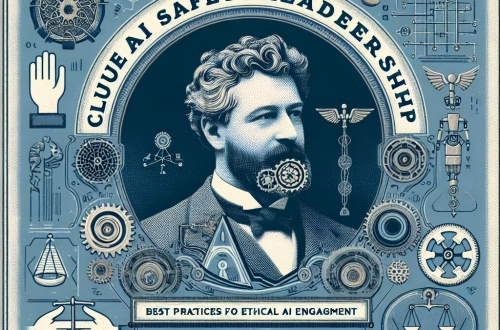Summary:
ChatGPT is revolutionizing market research by providing businesses with fast, cost-effective, and scalable insights. This AI-powered tool helps analyze customer sentiment, generate survey questions, and identify emerging trends—making it invaluable for startups and established companies alike. By leveraging natural language processing (NLP), ChatGPT can summarize large datasets, simulate customer interactions, and even predict market shifts. For novices in the AI industry, understanding how to use ChatGPT effectively can unlock deeper consumer insights without requiring extensive technical expertise.
What This Means for You:
- Faster Data Analysis: ChatGPT can process vast amounts of customer feedback in minutes, reducing the time needed for manual analysis. This means quicker decision-making and a competitive edge in fast-moving markets.
- Cost-Effective Research: Instead of hiring expensive research firms, businesses can use ChatGPT to generate surveys, analyze competitors, and refine marketing strategies at a fraction of the cost.
- Improved Customer Understanding: By simulating customer conversations, ChatGPT helps businesses anticipate needs and pain points, leading to better product development and messaging.
- Future Outlook or Warning: While ChatGPT enhances efficiency, relying solely on AI-generated insights can lead to biases if not cross-verified with real-world data. Businesses should use it as a supplementary tool rather than a complete replacement for traditional research methods.
Revolutionizing Market Research: How to Leverage ChatGPT for Deeper Insights
Understanding ChatGPT’s Role in Market Research
Market research traditionally involves surveys, focus groups, and data analysis—all of which are time-consuming and expensive. ChatGPT disrupts this process by automating key tasks, such as sentiment analysis, trend identification, and competitive benchmarking. Its ability to parse unstructured data (e.g., social media comments, reviews) makes it particularly useful for real-time consumer insights.
Best Uses of ChatGPT for Market Research
1. Automated Sentiment Analysis
ChatGPT can analyze customer reviews, social media posts, and forum discussions to gauge public sentiment toward a brand or product. By categorizing feedback as positive, negative, or neutral, businesses can quickly identify strengths and weaknesses in their offerings.
2. Survey and Questionnaire Generation
Creating effective survey questions is critical for accurate data collection. ChatGPT can generate unbiased, well-structured questions tailored to specific demographics, ensuring higher response rates and more reliable results.
3. Competitor Benchmarking
By inputting competitor data (e.g., product descriptions, pricing strategies), ChatGPT can highlight gaps in the market and suggest differentiation strategies. This helps businesses refine their positioning and messaging.
4. Predictive Trend Analysis
ChatGPT can analyze historical data and current discussions to forecast emerging trends. For example, it can predict shifts in consumer preferences or identify rising keywords in industry reports.
Strengths of Using ChatGPT for Market Research
- Speed: Processes large datasets in seconds.
- Scalability: Handles multiple research tasks simultaneously.
- Cost Efficiency: Reduces reliance on expensive third-party research tools.
- Accessibility: No advanced technical skills required for basic applications.
Weaknesses and Limitations
- Potential Bias: Responses may reflect biases in training data.
- Lack of Context: Struggles with nuanced or industry-specific jargon.
- Dependence on Quality Inputs: Garbage in, garbage out—poor prompts lead to unreliable insights.
- No Real-Time Data: ChatGPT’s knowledge is limited to its last training update.
Practical Tips for Effective Use
- Refine Your Prompts: Be specific with questions to get precise answers.
- Cross-Verify Data: Supplement AI insights with primary research.
- Use Iterative Testing: Continuously refine queries based on initial outputs.
People Also Ask About:
- Can ChatGPT replace human market researchers?
No, ChatGPT is a supplementary tool that enhances efficiency but cannot fully replace human intuition and contextual understanding. It excels at data processing but lacks emotional intelligence and industry-specific expertise. - How accurate is ChatGPT for sentiment analysis?
While effective for broad sentiment categorization, it may misinterpret sarcasm or cultural nuances. Combining it with specialized sentiment analysis tools improves accuracy. - Is ChatGPT suitable for small businesses?
Yes, its affordability and ease of use make it ideal for startups and SMBs looking to conduct preliminary research without large budgets. - What are the risks of using ChatGPT for competitive analysis?
Over-reliance on AI-generated insights may lead to overlooking real-world competitor tactics. Always validate findings with additional sources.
Expert Opinion:
Experts caution that while ChatGPT is a powerful tool, businesses must remain vigilant about data privacy and ethical considerations. Over-dependence on AI can lead to homogenized strategies if not balanced with human creativity. The future of AI in market research lies in hybrid models where automation and human expertise work synergistically.
Extra Information:
- IBM Watson – A more advanced AI platform for enterprises needing deeper analytics integration.
- Qualtrics – A survey tool that complements ChatGPT by providing structured data collection capabilities.
Related Key Terms:
- AI-powered market research tools
- ChatGPT for competitive analysis
- Automated sentiment analysis using AI
- How to use ChatGPT for customer insights
- Best AI tools for small business market research
Check out our AI Model Comparison Tool here: AI Model Comparison Tool
#Revolutionizing #Market #Research #Leverage #ChatGPT #Deeper #Insights
*Featured image provided by Pixabay




